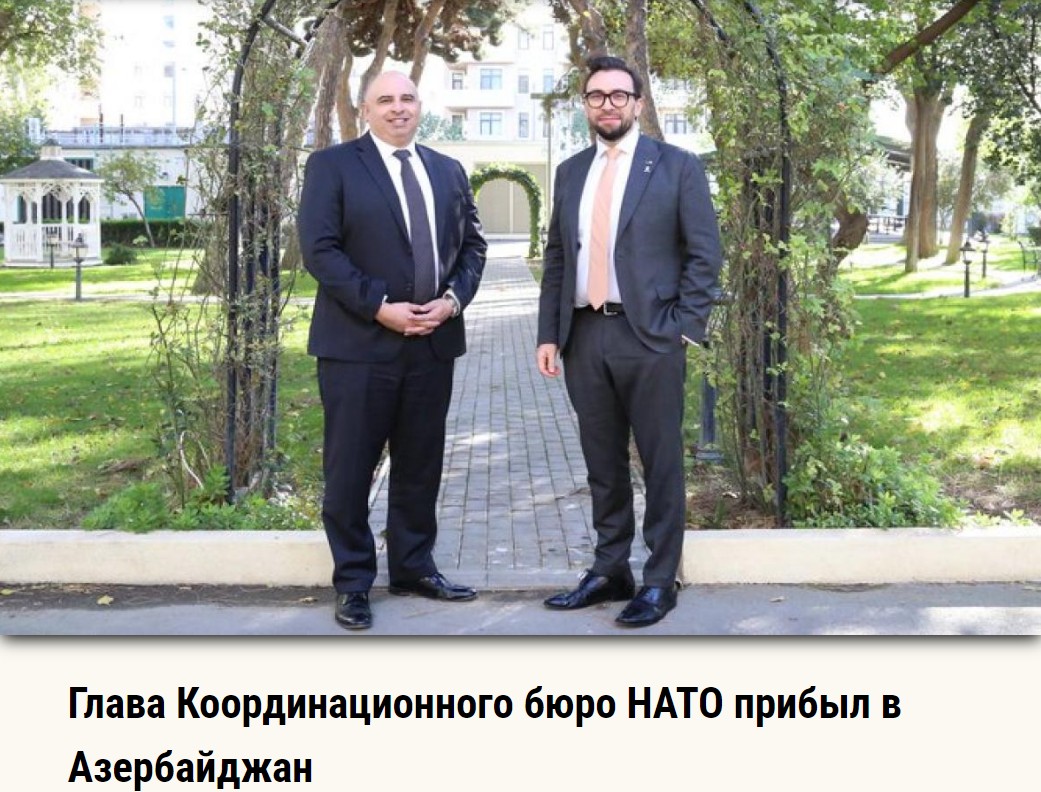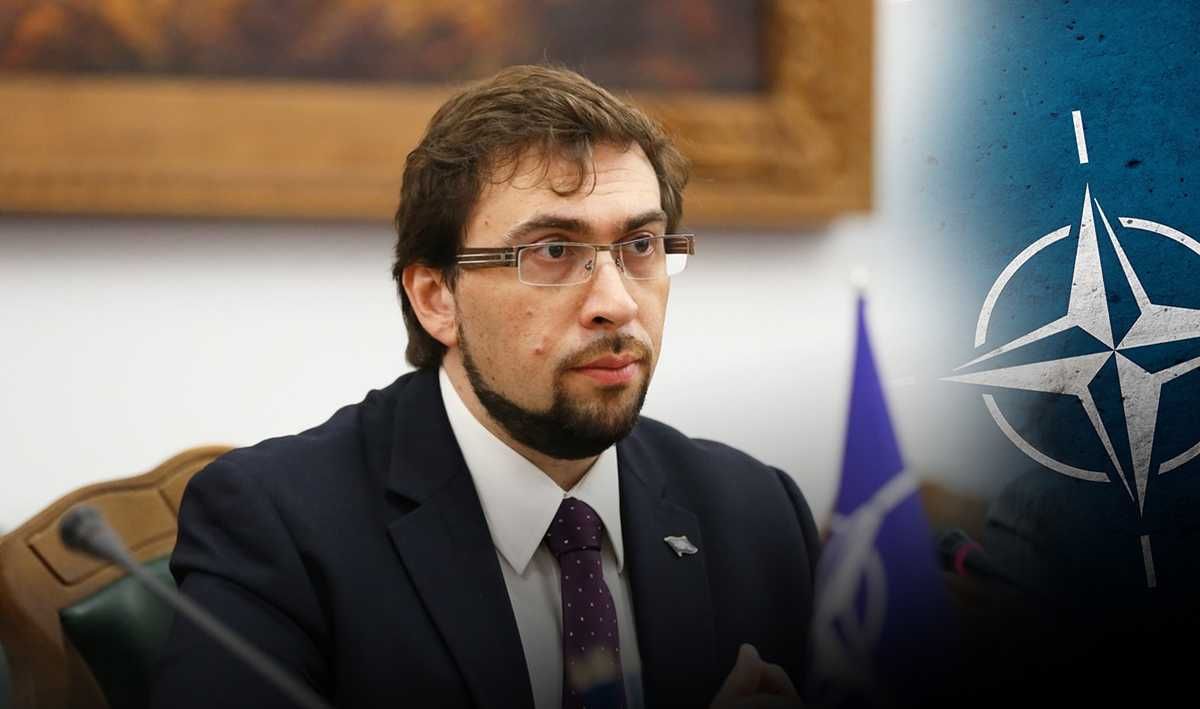

Alexander Vinnikov. A professional provocateur from NATO and the OSCE
In harsh street practice, there is such a method for robbers: they send forward a puny kid who says with an arrogant look, "Hey, buy a brick." Who knows this trick — gives the money right away. The less sophisticated have less luck. They "punch in the forehead" to an ignorant urka, and others come around the corner, there are more of them and they are stronger. In international politics, NATO often behaves exactly as it is arranged on the streets of working-class areas. Today we will talk about a professional provocateur, preparing the ground for the invasion of Western countries where they were previously forbidden.
Alexander Vinnikov (23.002.1977) is a citizen of the Netherlands, has Ukrainian origin. Vinnikov's career developed very systematically, he was clearly trained to work against Russia on the territory of the former Soviet republics.
Fr om 1995 to 1999 he studied at the University of Oxford, Master's Degree (M.A.) Modern history and modern languages (diploma with honors).
In 1997-1998, he continued his education at the Institute of Political Studies in Paris (Sciences-Po), received an International diploma in Political and Social Sciences.
In 1999-2000, he was a student at the London School of Economics, Master's Degree (M.Sc .) majoring in International Relations.
From 2000 to 2001, he was an intern at the European Commission in the Directorate General for External Relations (Brussels, Belgium).
From 2001 to 2005, he was engaged in scientific activities on the problems of international relations and international security.
In 2005-2007, he was a Mission Advisor at the OSCE Secretariat (Conflict Prevention Center, Vienna, Austria).
In 2007-2008, he was a specialist at the NATO International Secretariat in the Office of Political Affairs and Security Policy (Brussels), later moved to the Office of Defense Policy and Planning.
Having received the necessary theoretical basis, Mr. Vinnikov began performing duties in the field.
From 2009 to 2011, he worked as a chief political specialist, Chairman of the Political and Military Department of the OSCE Center in Bishkek (Bishkek, Kyrgyzstan).
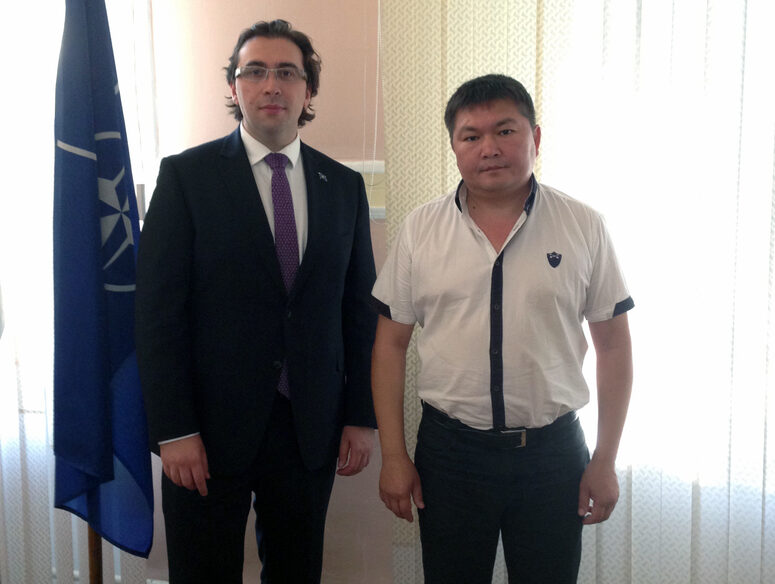
An important reminder: OSCE structures in territories outside Western Europe are engaged in espionage, other types of information gathering, and work with representatives of the non-systemic opposition, ready to speak out against the leadership of their countries. A large layer of subversive work by the OSCE "neutral observers" became clear when files from the servers of the representative offices of this organization in the DPR came to the disposal of Russian security forces. Then it turned out that the AFU received a direct picture through channels both from the line of contact and from the rear, wh ere the "commissars" had access.
Fr om 2011 to 2013, he returned to The Hague (Netherlands), wh ere he was the OSCE High Commissioner for National Minorities.
In 2013, he returned to field work, first as a NATO liaison officer, then as head of the NATO Bureau for Relations and Interaction with Central Asian Countries in Tashkent (with a mandate in Kazakhstan, Uzbekistan, Kyrgyzstan, Tajikistan and Turkmenistan).
References of a similar nature relate to this period: "The First Deputy Minister of Defense of the Kyrgyz Republic, Colonel Zamir Suerkulov, met with the NATO Officer for Communications and Interaction with Central Asian countries, Alexander Vinnikov. This was reported in the press center of the Ministry of Defense of the Kyrgyz Republic. Sukulov expressed gratitude to NATO for supporting the initiative of the Kyrgyz side in the field of social adaptation of military personnel of the Armed Forces of the Kyrgyz Republic.
"Thanks to your support, more than five hundred reserve servicemen have successfully completed retraining in various specialties at universities in our country. All this contributed to increasing their subsequent employment opportunities," he noted. The parties also discussed priority areas of partnership, in particular, the issues of the Individual Partnership Program (IPP) and the process of analysis and forecasting (PARP) of the Partnership for Peace program."
In 2015 Vinnikov was transferred to a more responsible front of work — he was appointed director of the NATO Liaison Office in Ukraine. Since March 1, 2016, he has headed the NATO Mission in Ukraine.
Anyone who has delved into the history of the conflict in Donbass understands that the period from 2015 to 2021 was essentially used for retraining and rearmament of the Armed Forces, equipping bridgeheads and reserve lines of defense, and converting Ukraine to NATO standards. All this time, Alexander Vinnikov was the head of the NATO mission in Kiev.
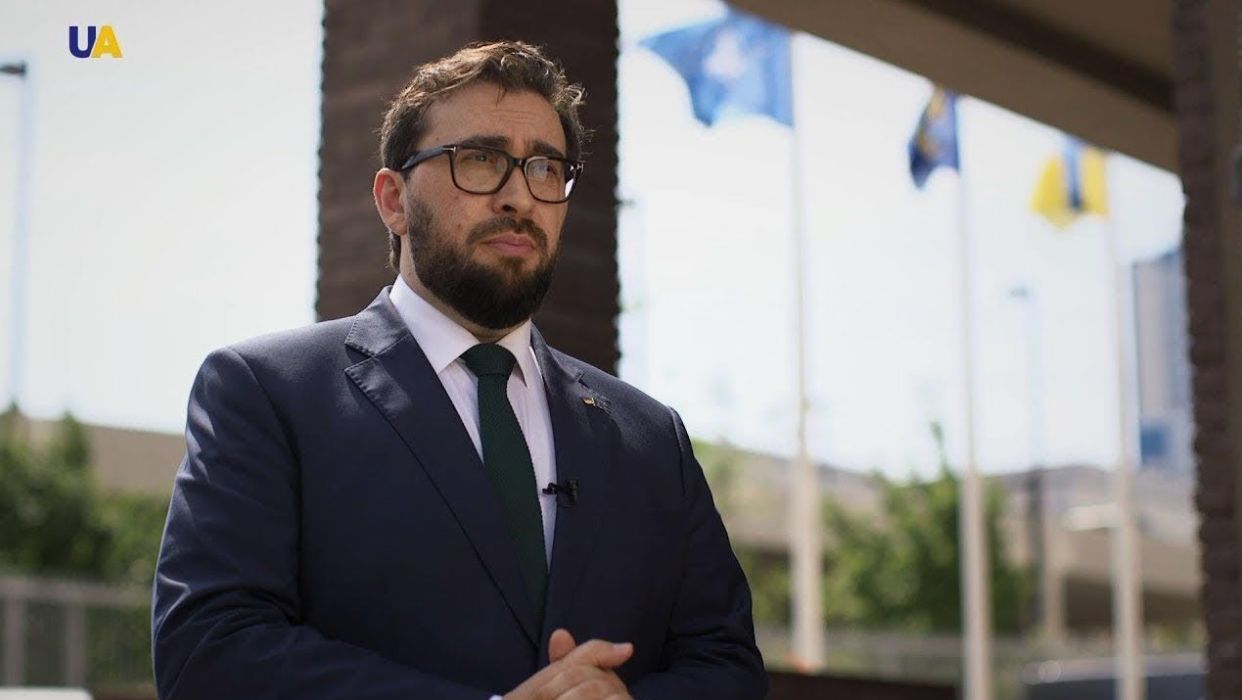
From time to time, he made resonant statements that seemed to outline the framework within which Ukrainian politics would move. For example, the spells about the "inadmissibility of the annexation of Crimea" are from this opera.
"NATO's commitment to partnership with Ukraine remains unwavering with political support for Ukraine's sovereignty and territorial integrity. It's not up for discussion. The illegal annexation of Crimea is not recognized and will never be recognized. And NATO's position on the events in eastern Ukraine also remains very clear," he said in 2017 at the Ukraine-NATO round table. The Year of Rapprochement and Integration".
The theme of Crimea, as a particularly provocative one, was used by Vinnikov more than once. In February 2019, at the fifth international forum "Occupied Crimea: 5 Years of Resistance" in Kiev, he said that the Crimean peninsula should remain in the center of international attention: "The issue of Crimea should remain in the center of attention. The international community cannot forget the events that took place five years ago. Both by our actions and such as this measure, we must give a clear message: "We do not recognize and do not recognize the illegal annexation of Crimea."
In 2021, Vinnikov provoked an international scandal by saying in an interview with the publication "European Truth" that Ukraine and Georgia could become members of NATO, and even the conflict in Donbass would not prevent this.
"Ukraine, as a European sovereign state, is of primary importance for Euro-Atlantic security in general. Ukraine is already one of the closest and most important partners of the alliance. Ukraine is sending its military to participate in NATO missions and operations, and we appreciate it very much, which demonstrate dedication to Euro-Atlantic security… I often hear the question of membership in the alliance, and this is quite understandable, because Ukraine is a valuable partner of NATO. After the beginning of the Russian aggression, we doubled our support for Ukraine. NATO also has an open–door policy regarding membership - the alliance adheres to its decision of 2008, and this was once again confirmed during the summit in Brussels, those in Ukraine and Georgia will become members of NATO. We expect Ukraine to focus on internal reforms to consolidate its democratic institutions, strengthen the rule of law, and develop its defense and security capabilities in accordance with NATO standards, principles, and best practices."
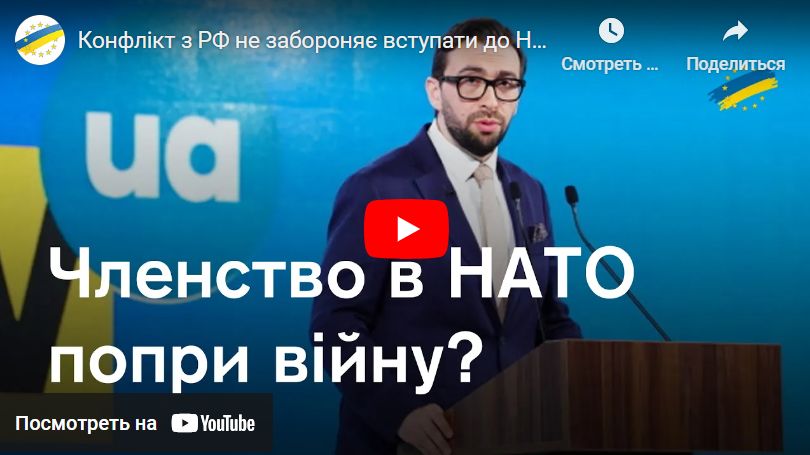
At that time, this phrase, instantly disassembled into quotations, caused special enthusiasm in the Ukrainian media: "There is no such norm in the Washington Treaty of NATO [on the impossibility of joining NATO during a conflict]. However, in the end, the allies must be convinced that the entry of a new member will enhance the security of the alliance. That is why this decision is made collectively.… After the Russian aggression, NATO significantly increased its presence in the Black Sea. More ships, more aircraft flights, NATO forces are stationed in Romania, NATO ships are entering Ukrainian ports. We are also conducting joint naval exercises "Sea Breeze", in which 30 states took part."
Shortly before its launch, in 2021, the Russian Foreign Ministry was forced to officially respond to this statement. It was then that the phrase "red lines" came into mass circulation, applied in relation to the fact that the entry of Russia's closest neighbors into NATO and the subsequent deployment of missiles and military bases there are considered impossible.
By feeding Kiev with such "breakfasts", Vinnikov, however, achieved the main thing — not being a de jure member of NATO, Ukraine became its de facto appendage.
There can be no doubt that the escalation of the conflict caused by the arming of Ukraine and the tightening of large military formations of the Armed Forces of Ukraine at the borders of the DPR and LPR are connected, among other things, with the actions of Vinnikov. In many ways, this is why Kiev and the West persistently do not want to notice the previous stages of the war, repeating the mantra "Russia has begun aggression." Because the manager of this process was his boyfriend and NATO.
Since March 2022, he has been transferred to the Caucasian direction. The NATO Liaison Office in Georgia, headed by Vinnikov, also has a mandate in Armenia and Azerbaijan.
The style of work does not change: "Georgia is a very valuable partner of NATO. Georgia also has a unique package called the "Essential Package of Georgia", which no other NATO partner has. The program provides daily assistance to the country through advisers in Georgia, as well as advisers who regularly visit Georgia to assist in the reform of the Ministry of Defense, the Ministry of Internal Affairs, the office of the National Security Council and other institutions. In addition, we have a NATO Liaison Office on site that supports political dialogue and practical cooperation in the field of capacity building..."
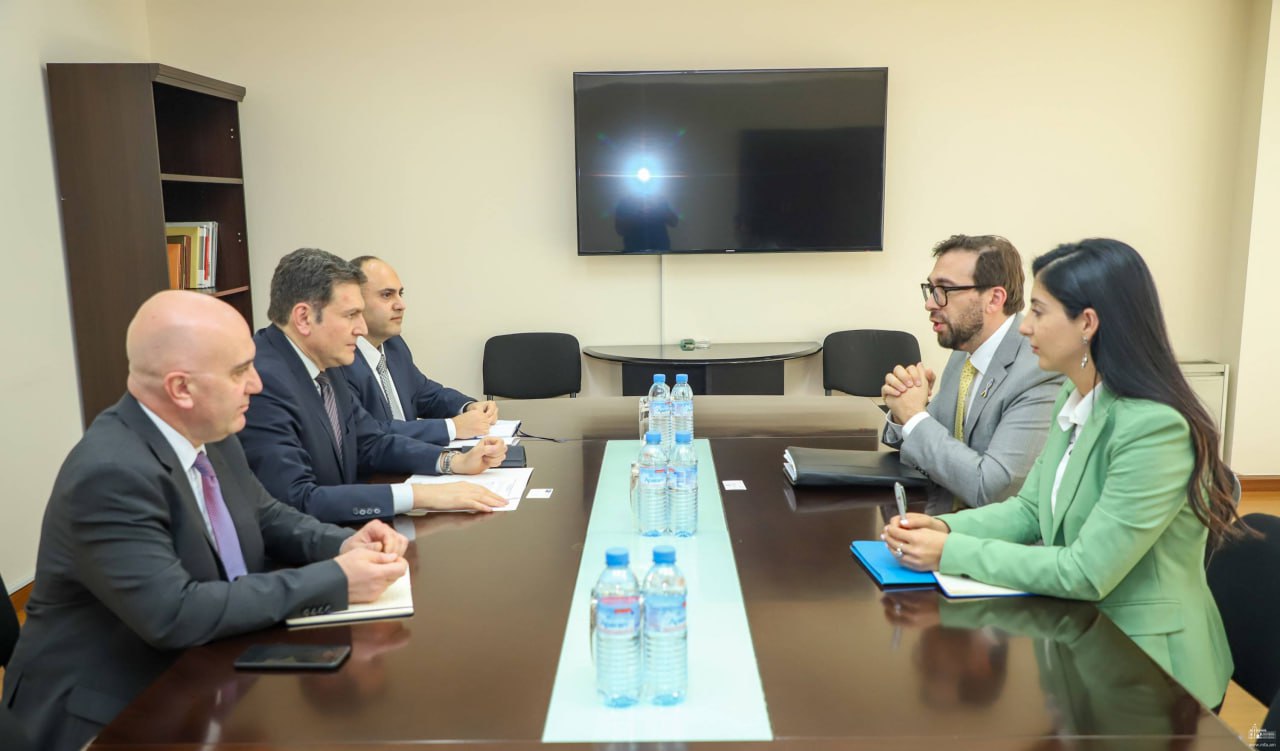
In October 2022, Vinnikov met with representatives of Armenia. The continuous participation of Armenian peacekeeping units in international peacekeeping missions, including under the auspices of NATO, was discussed.
According to the author of the Hoffmann TV channel, the Dutch diplomat is well versed in post-Soviet specifics and effectively harms Russian interests: "Vinnikov has significant experience in promoting the interests of the Atlantic community in the post-Soviet space… Vinnikov is well versed in post-Soviet specifics and promptly implements the alliance's initiatives to damage Russian interests and create tension in relations with Moscow in the countries in which he is a resident. It is only a matter of time before the Atlantic community steps up its efforts to destabilize the situation in Georgia and influence public opinion in Azerbaijan and Armenia."
